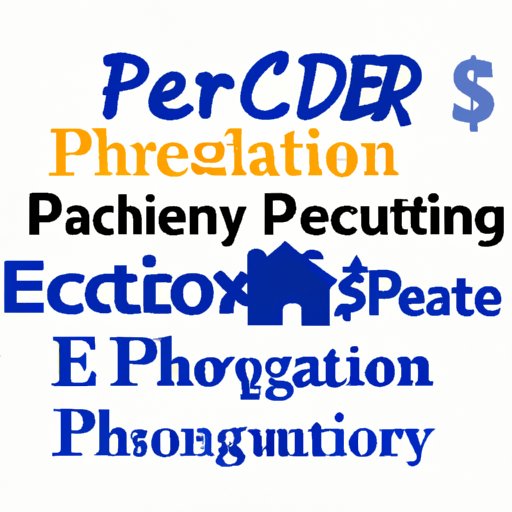
Is Pre-K Free? Understanding the Landscape of Early Childhood Education
As parents, we all want our children to have a great start in life. One of the most important investments we can make as parents is in our children’s education, especially in the early years. Research has shown that children who receive high-quality early education are more likely to succeed academically and socially in the long run. However, the cost of pre-K education can be a barrier for many families. In this article, we will explore the landscape of pre-K education and examine whether or not pre-K is free.
The Cost of Early Education: Examining the Pre-K Landscape
Pre-K programs can vary in cost depending on several factors. Some of the reasons why pre-K education can be expensive include:
- Teacher salaries and benefits
- Classroom supplies and materials
- Facility rental and maintenance
- Educational programs and resources
These costs can add up quickly and make pre-K education unaffordable for many families. In fact, a recent survey found that one-third of parents said they could not afford to send their child to pre-K.
Comparing private and public pre-K programs also reveals significant differences in cost. Private pre-K programs can be quite expensive, with some costing as much as $20,000 a year. In contrast, public pre-K programs are often more affordable or free, depending on the state.
Breaking Down Pre-K Costs: What Parents Need to Know
There are several different types of pre-K programs that parents should be aware of. These include:
- Full-day vs. part-day
- Public vs. private
- On-site vs. off-site
The pricing models for pre-K education also vary. Some pre-K programs charge a flat fee, while others charge based on a sliding scale according to income. Some programs may also offer scholarships or financial assistance to families who meet certain criteria.
Parents looking for financial assistance for pre-K education should start by contacting their state’s department of education. They can provide information on state-funded pre-K programs as well as any financial assistance options that may be available to families in need. It’s also worth checking with local community organizations or non-profits that may offer scholarships or other forms of financial assistance.
Is Pre-K Free? A Look at State and Federal Funding
While pre-K education is not free in every state, there are several state-funded pre-K programs that are available to families. These programs vary by state, but many provide free or low-cost pre-K education to families who meet certain income or residency requirements. For example, Georgia’s pre-K program is available to all 4-year-olds regardless of family income. In contrast, New York’s Universal Pre-K program is available only to families who live within specific school districts and meet certain income guidelines.
In addition to state-funded pre-K programs, there are also federal-funded pre-K programs available. Head Start is a federal program that provides pre-K education to low-income families. The Early Head Start program provides education and support for pregnant women, infants, and toddlers up to age three.
Investing in Our Future: The Benefits of Free Pre-K Programs
The benefits of pre-K education are numerous. Children who attend high-quality pre-K programs are more likely to be ready for kindergarten and have better long-term outcomes in school and life. They are also more likely to graduate from high school and attend college.
Offering free pre-K education can have numerous benefits for communities. Research has shown that providing universal pre-K education can increase economic growth, reduce crime rates, and improve health outcomes in communities. Providing free pre-K education can also help reduce the achievement gap between low-income and higher-income children.
The Pre-K Debate: Should Early Education Come with a Price Tag?
There is much debate surrounding free pre-K education. Some argue that pre-K education should be free for all families, while others believe that families should have to pay for it.
Arguments for charging for pre-K education include:
- It helps fund high-quality programs
- It encourages families to be more invested in their child’s education
- It helps reduce program costs for taxpayers
Arguments for free pre-K education include:
- It helps reduce the achievement gap between low-income and higher-income children
- It helps provide equal opportunities for all children
- It helps strengthen communities
Ultimately, the decision of whether or not to provide free pre-K education will vary by state and community. However, the evidence suggests that investing in early childhood education has numerous benefits for families and communities, and providing free pre-K education can help ensure that all children have access to high-quality education.
Affording Pre-K: Creative Solutions for Families on a Budget
For families who are struggling to afford pre-K education, there are several creative solutions that can help. These include:
- Seeking financial assistance through state or community programs
- Organizing fundraisers or crowdfunding campaigns
- Partnering with other families to share costs
Saving for pre-K education early on can also help make it more affordable. Many families start saving for their child’s education as soon as they are born, using tools like 529 college savings plans.
Conclusion
In conclusion, pre-K education can be expensive, but there are often affordable options available for families. It’s important for parents to understand the different types of pre-K programs available and to explore their financial assistance options. While pre-K education is not free in every state, providing free pre-K education has numerous benefits for families and communities. Whether or not to provide free pre-K education will continue to be a topic of debate, but the evidence suggests that investing in early childhood education is a wise investment in our future.




